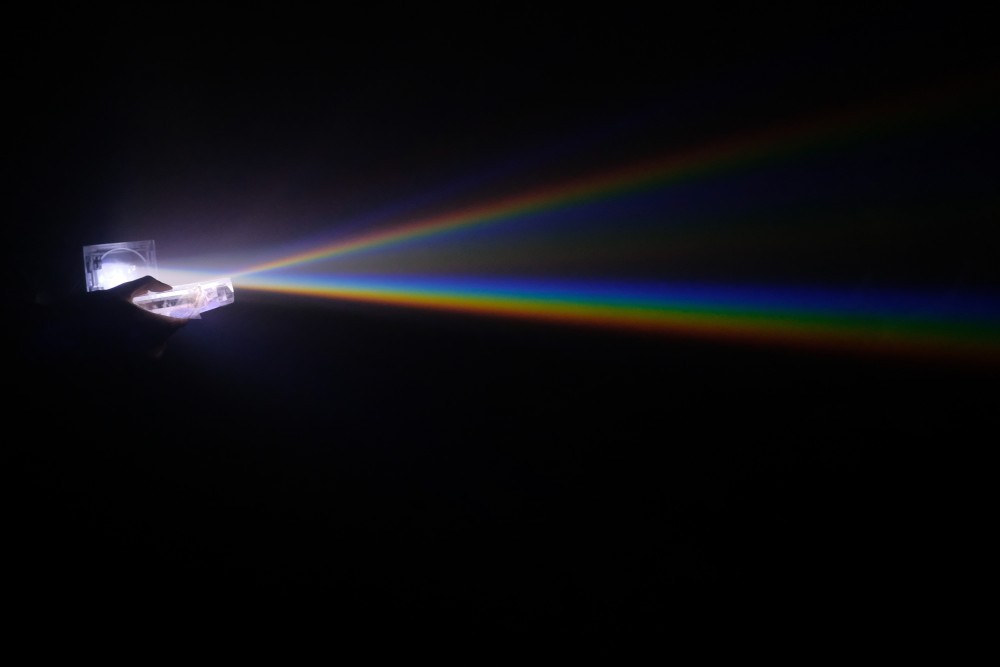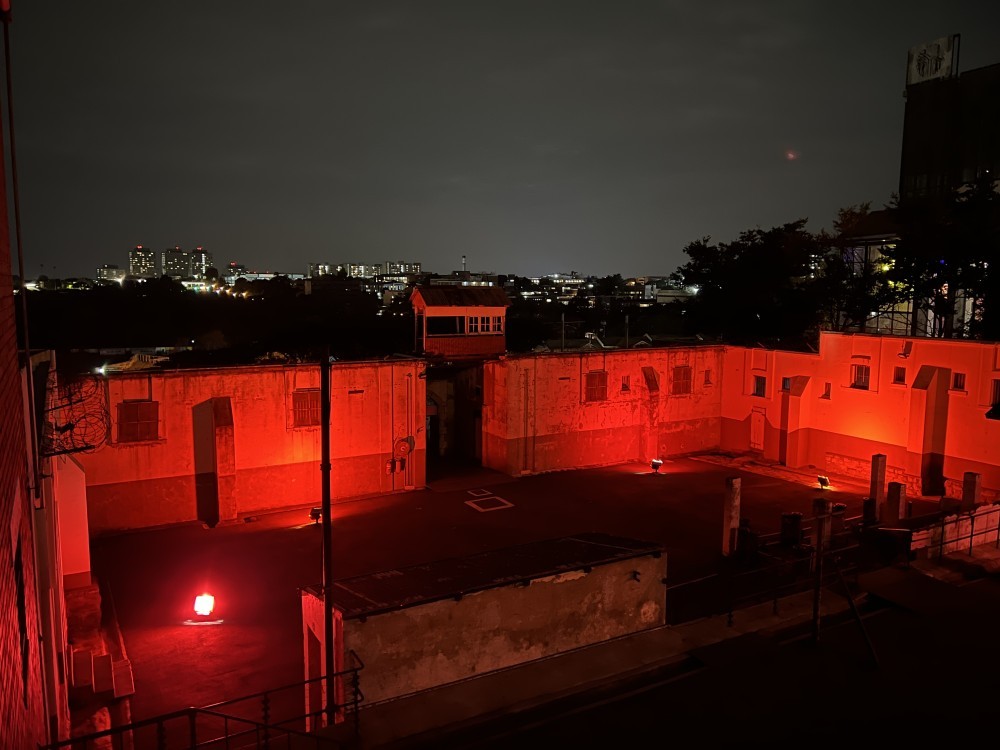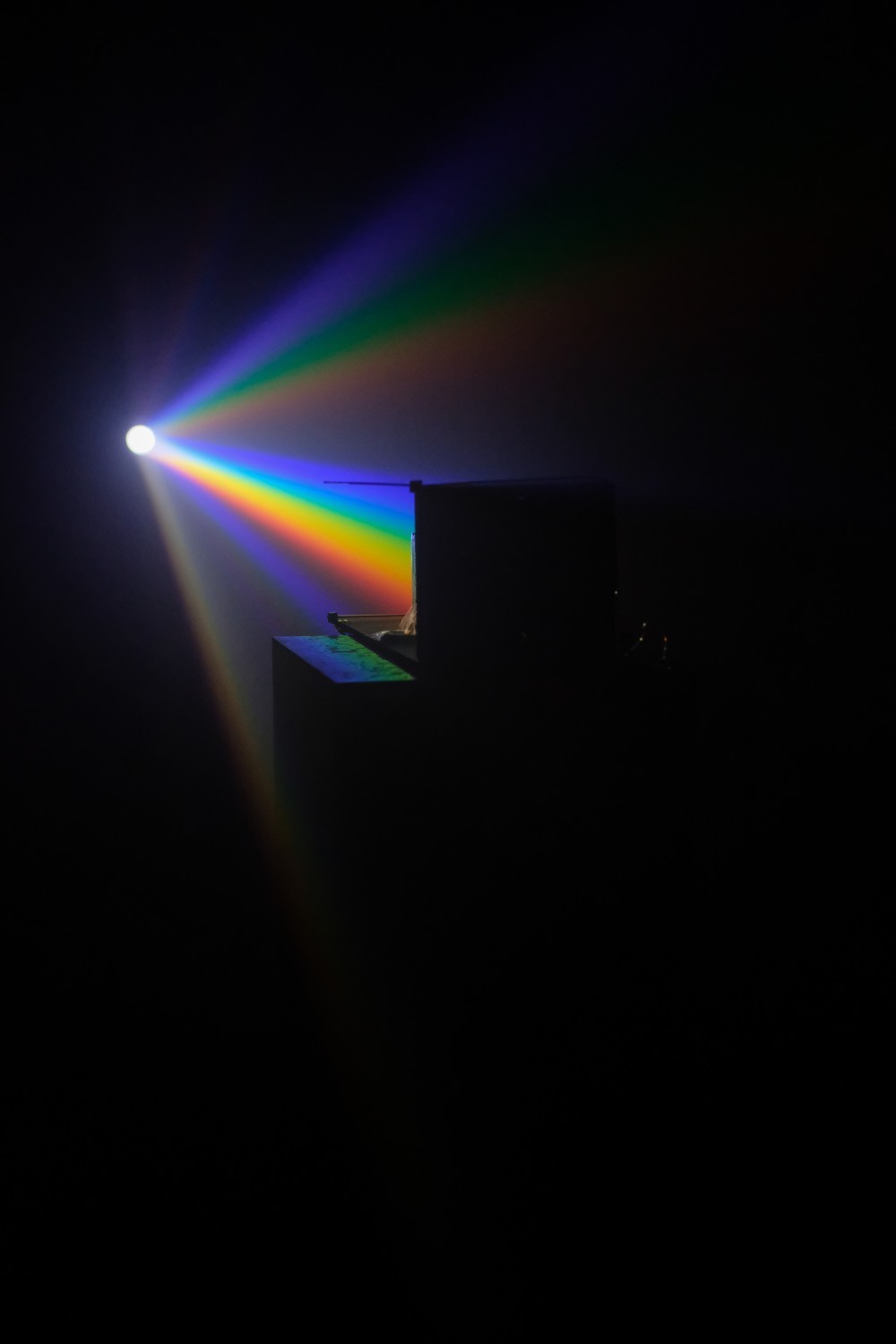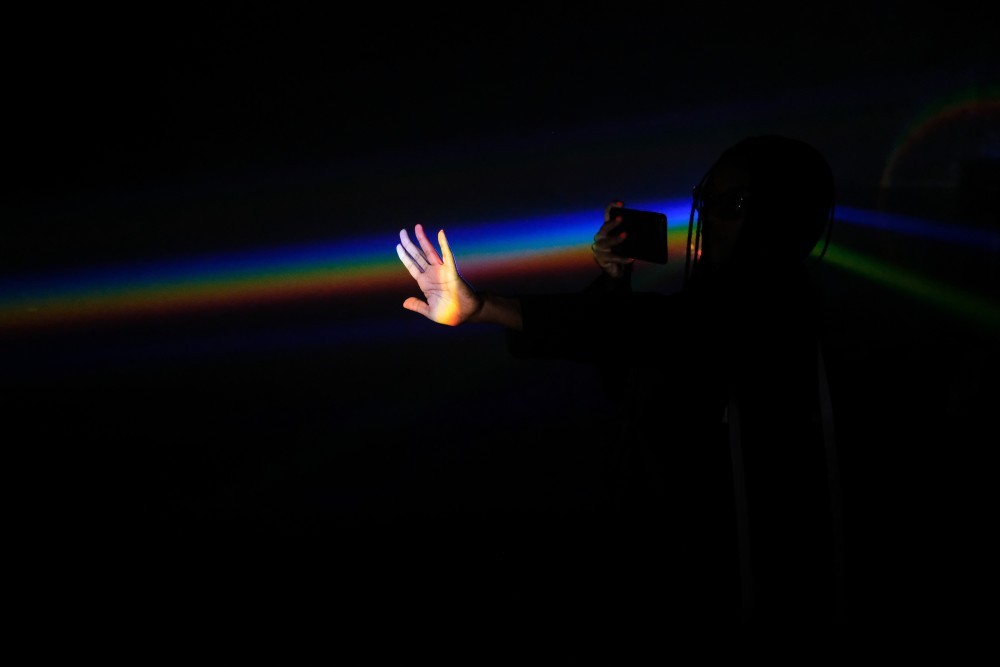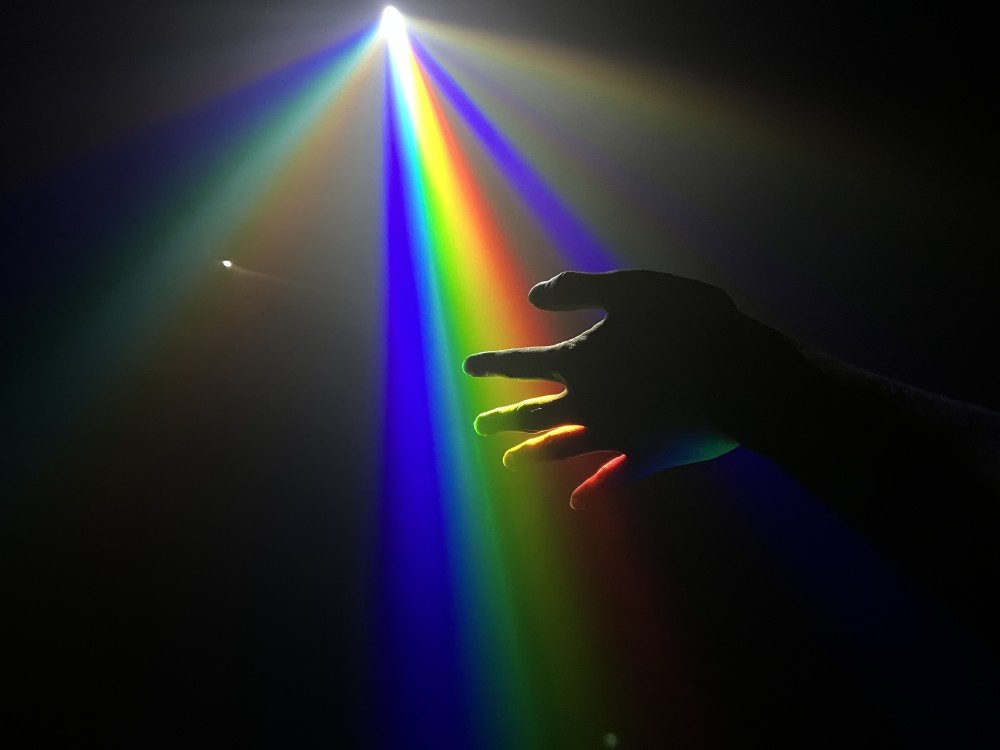
Kamil Hassim’s Event Horizon: exploring the cultural and scientific notions of black holes
Event Horizon is the result of Kamil's residency at CERN, SAAO, and SARAO and his artistic research into fundamental physics, modern African astronomy, and ancient indigenous cosmologies
In Event Horizon Hassim takes us on a journey through the mysteries of black holes and the cosmic principles that govern our universe. At the heart of this work lies an exploration of how information permeates through social, cultural and physical systems based on concepts relating to Black Holes. These are the information paradox, holographic principle and the Event Horizon. Kamil's work invites us to contemplate these complex ideas through our senses and emotions, rather than just through our intellect. By using defunct astronomical lenses to create optical effects, his installations immerse us in an experience that is designed to facilitate a process of ‘embodied knowledge’. This process allows us to engage with these ideas on a visceral level, connecting us more deeply to the mysteries of the cosmos. The idea of embodied knowledge is central to many indigenous knowledge systems, which hold that knowledge is not something that can be acquired solely through intellectual pursuits. Rather, it is something that must be felt and experienced, in order to be fully understood.
The Event Horizon is the boundary around a black hole beyond which nothing can escape. It is a point of no return, where light and, therefore, information cannot be transmitted. The holographic principle, which suggests that all the information contained within a region of space can be encoded on its boundary, is another example of how information can be lost or obscured within a closed system. This principle implies that the universe may be like a hologram, with three-dimensional information projected onto a two-dimensional surface.
In the context of cultural systems and the effects of colonialism, the erasure of knowledge and the loss of information can be seen as similar processes. The study of black holes and the phenomena associated with them, such as the information paradox and the holographic principle, can be seen as metaphors for the way in which knowledge and information can be erased or augmented within closed systems. In the case of black holes, information that falls into them is thought to be lost forever, unable to escape due to the extreme gravitational pull. This presents a paradox, as information is thought to be conserved in quantum mechanics, meaning that it cannot be destroyed.
The imposition of colonialism often involved the suppression of indigenous knowledge systems and the imposition of Western epistemologies. This has resulted in the loss of knowledge and cultural heritage for many communities around the world.The intersection of art and science, as explored in the Event Horizon offers a way to bridge these gaps and connect people to the mysteries of the cosmos, while also acknowledging the importance of different cultural knowledge systems.
The exhibition seeks to create an immersive experience that allows visitors to develop embodied knowledge of phenomena like light and data, while also engaging with the complex cultural and scientific concepts associated with black holes. By doing so, it offers a space for dialogue and engagement that can help to promote a more inclusive and diverse understanding of science and its relationship to culture. Due to how prismatic light behaves, certain wavelengths are only visible at particular angles, because of this no two observers in the room see the same thing despite observing the same event. Here another connection is made between a fundamental concept in theoretical physics, and a foundational idea in many indigenous cosmologies: that the act of observing the universe is in itself an act of creation because information and events exist in relation to one another.
This exhibition is the result of Kamil's Connect South Africa residency at CERN, SAAO Astronomy, and SARAO. Connect South Africa is part of Connect, the collaboration framework between Arts at CERN and the Swiss Arts Council Pro Helvetia that that serves as a platform for dialogue between artistic and scientific communities worldwide.
Event Horizon is presented in collaboration with the South African Astronomical Observatory, Constitution Hill, and WhereWithAll, and curated by Bulumko Mbete. Supported by the National Arts Council of South Africa as part of the Presidential Employment Stimulus Package (PESP).
